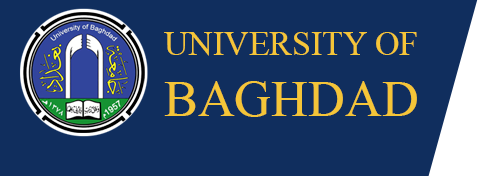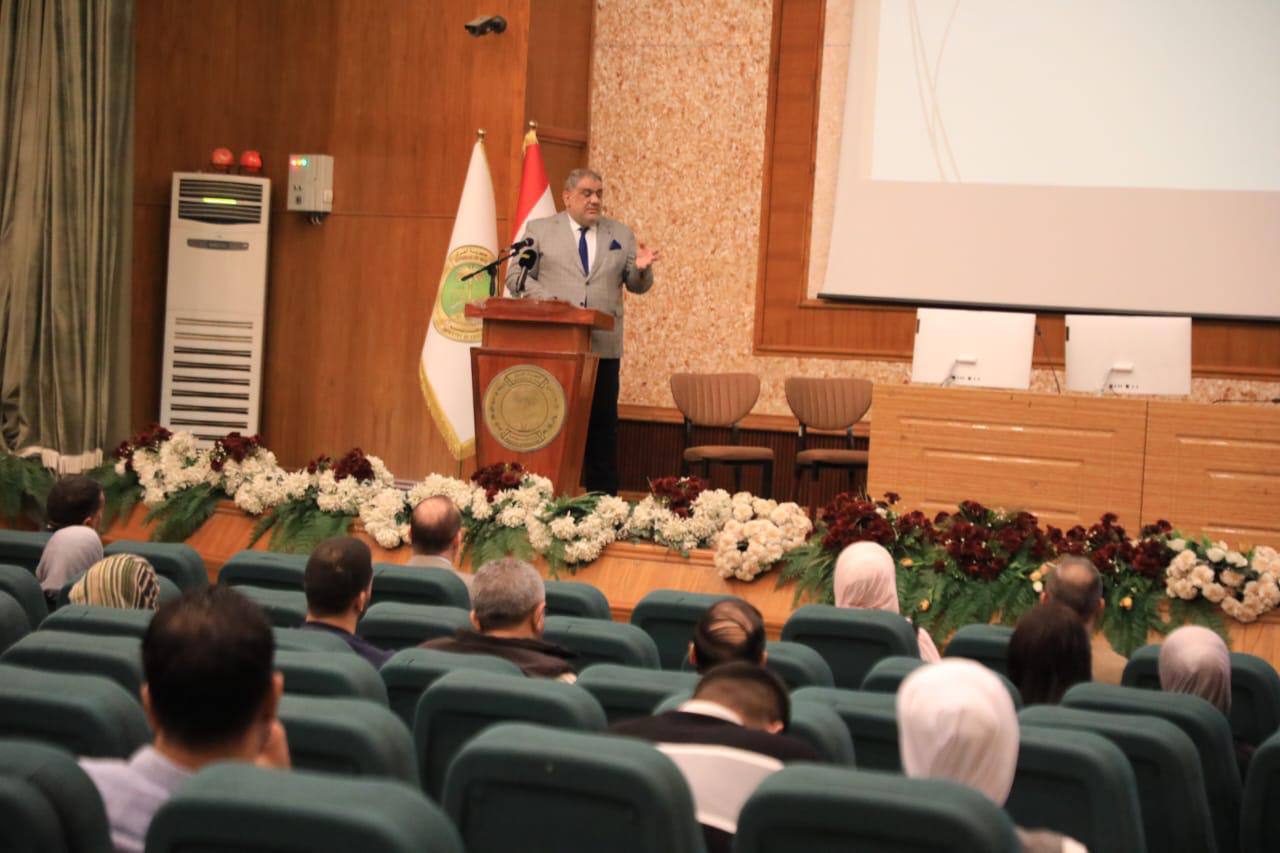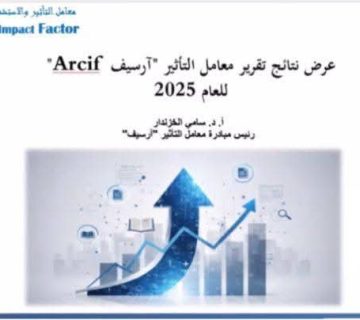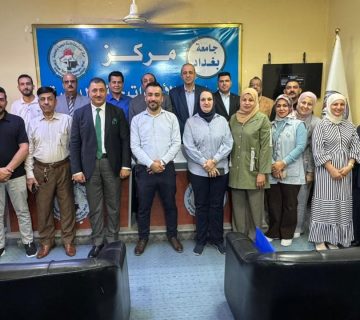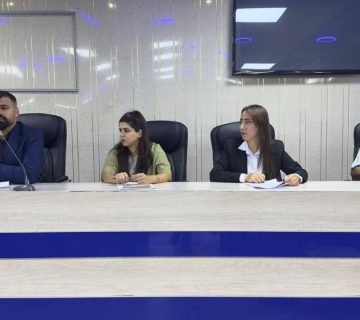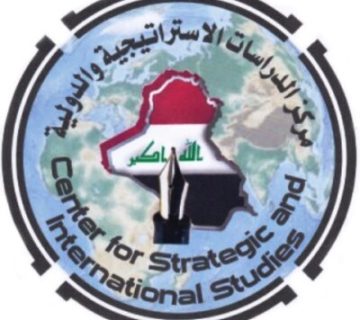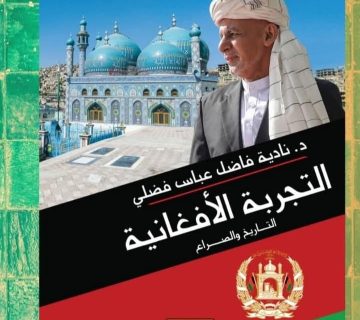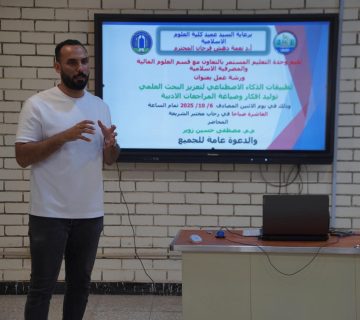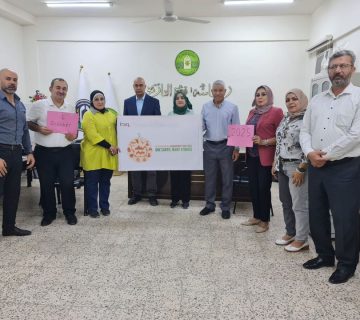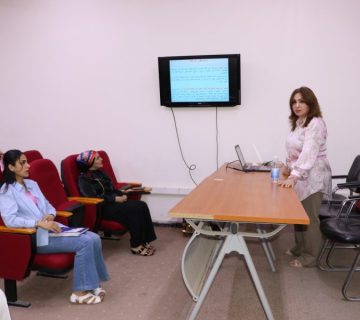The College of Administration and Economics at the University of Baghdad organized an awareness workshop entitled (The Importance of the Census and its Role in Advancing Development in Iraq), during which the two lecturers of Prof. Dr. Qutayba Nabil Nayef Al-Qazzaz from the Department of Statistics and Assistant Professor Dr. Walid Abdullah Rahima from the Technical University gave lectures to the employees of the Ministry of Higher Education and Scientific Research. It is noteworthy that the above teachers are members of the Supreme Commission for the General Population and Housing Census in Iraq.
The workshop aimed to introduce the General Population Census and its role in advancing development and the importance of the General Population and Housing Census of the Ministry of Higher Education and Scientific Research in Iraq to provide an accurate and comprehensive database on the population and their demographic and social distribution, which helps the Ministry to make effective strategic decisions that meet the needs of higher education and contribute to the development of scientific research, as it is a pivotal tool for the Ministry of Higher Education and Scientific Research that enables sustainable planning, achieving justice in education, directing scientific research and improving the quality of education. Higher in proportion to the needs of the Iraqi society and achieving the goals of comprehensive development.
The workshop came out with a number of recommendations, including the establishment of a training course on in-depth demographic analysis for employees of the Department of Studies, Planning and Follow-up who held higher degrees in statistics and academic planning based on data and the use of census results in directing academic resources as well as identifying places of need for universities and institutes based on population density in various regions, which helps in a balanced distribution of educational institutions and the development of educational programs according to market needs and understanding the age structure and basic skills of society helps in developing educational programs that meet market needs and identify gaps in skills and areas required in Iraq as well as allowing universities to update curricula accordingly and plan for building educational infrastructure. Through the census, densely populated areas that lack adequate educational facilities can be identified, which contributes to directing investments to build new schools and universities where the need is greater, developing policies of financial support and scholarships, understanding the economic situation of families, distributing scholarships and financial support to students from needy groups to reach support to the most needy groups as well as improving student services and providing better services for students such as transportation, housing and nutrition based on census data, directing scientific research to study local issues and providing insights on economic, social and health problems that the Ministry of Higher Education can direct research to study and find appropriate local solutions and encourage investment in private education and identify areas in need of education, which contributes to motivating investors to open private educational institutions where the need is real and develop educational policies in a sustainable manner, understanding the expected population growth and its geographical distribution, which helps in developing educational plans in line with the expected
